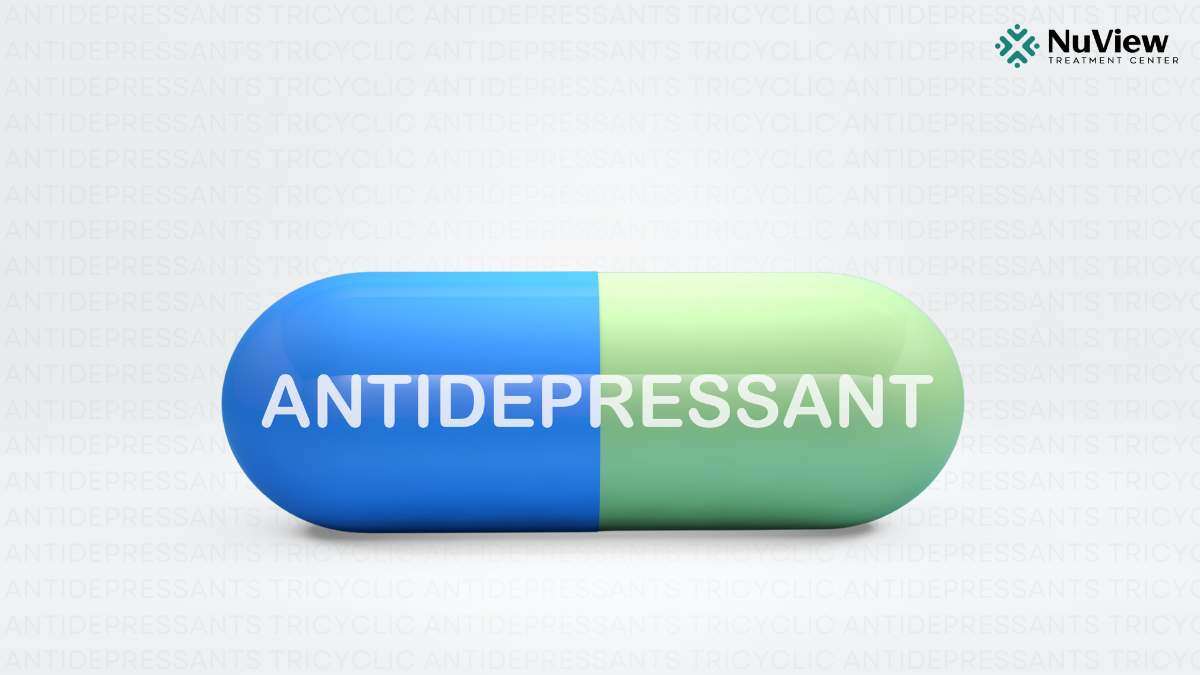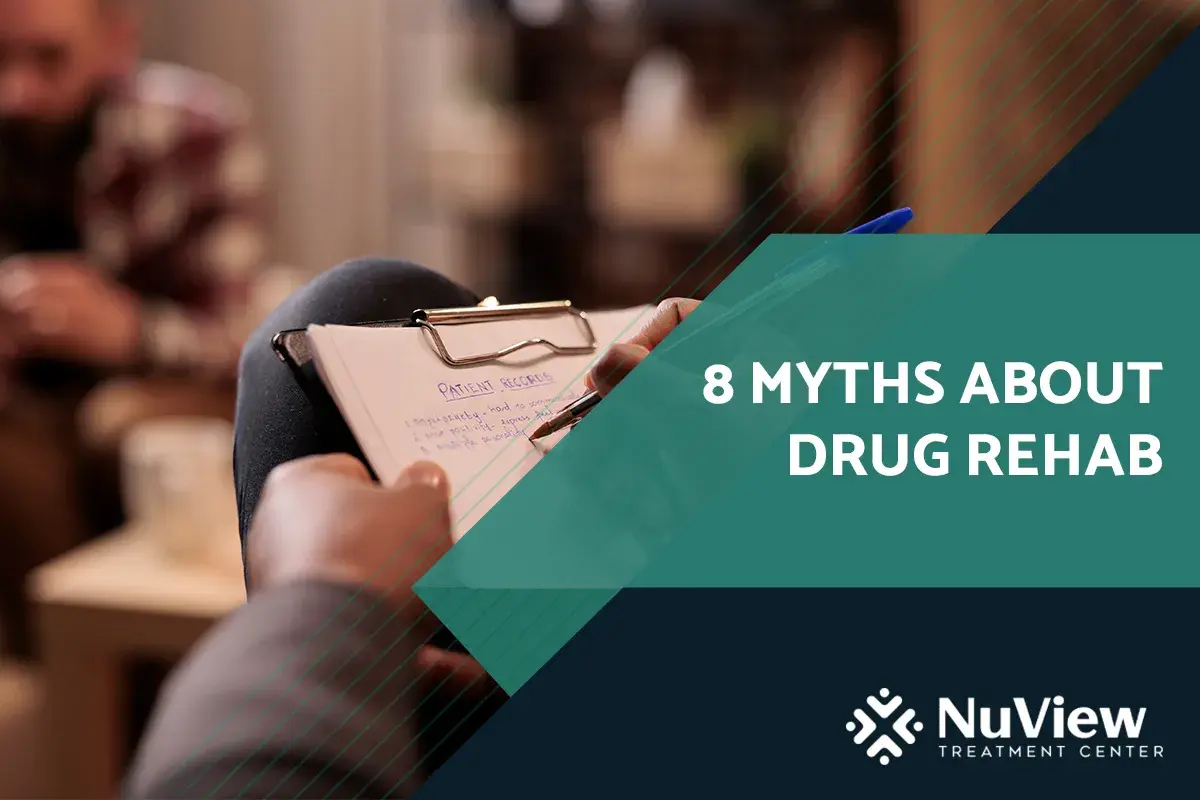Major depressive disorder, commonly known as depression, is among the most prevalent mental health conditions. While often mistaken for low mood or sadness, it is characterized by extreme feelings of sadness, emptiness, worthlessness, and hopelessness. It is also a prevalent condition, with nearly 21 million Americans being diagnosed with major depressive disorder every year. If ignored, it can be a very dangerous condition, and in extreme cases, depression can lead to suicidal thoughts and actions.
The good news is that depression can be treated. Tricyclic antidepressants are the earliest kind of antidepressants developed to treat depression. While effective, they have been replaced by other medications given their harmful side effects. Due to their chemical structure which consists of 3 rings of atoms, these medicines are called tricyclic.
In this blog, we shall seek to understand what tricyclic antidepressants are, how they work, their uses, and their side effects.
What Are Tricyclic Antidepressants?
If you or someone you love has ever been through depression and anxiety tricyclic antidepressants might have been considered a medication by your doctor. Tricyclics, commonly abbreviated as TCAs, are first-generation antidepressants. They are known as tricyclic because of their chemical structure consisting of three rings. TCA drugs are the earliest type of antidepressant created to treat and manage major depressive disorder or clinical depression. They are, however, only one of the classes of antidepressants. There are others that came after and are generally more prescribed than TCAs given their efficacy and fewer side effects.
Today, TCAs are often prescribed for non-U.S. Food and Drugs Administration (FDA)-approved uses rather than for depression itself.
How Do Tricyclic Antidepressants Work?
Tricyclic antidepressants work by targeting neurotransmitters. Neurotransmitters are chemicals that are responsible for transmitting messages between one nerve cell and another in the brain. TCAs mainly target those neurotransmitters that are responsible for affecting mood. In doing so, they modify the brain chemistry and communication between the nerve cells to improve the symptoms of depression.
Now, serotonin and norepinephrine are two neurotransmitters in the brain that are often referred to as the “feel good” hormones. Both of these neurotransmitters regulate mood. TCAs block their reuptake, and in doing so, increase the levels of serotonin and norepinephrine in the brain, thereby elevating mood and improving other symptoms associated with depression.
Get Started With Nuview Treatment Center
Our dedicated professional staff is here to guide you or your loved one on the journey to lasting recovery, offering support every step of the way.
Common Uses of Tricyclic Antidepressants
Tricyclic antidepressants are FDA-approved medications for treating major depressive disorder or clinical depression. They are first-generation or the earliest-created antidepressants. However, many other antidepressants that came after have fewer side effects than these TCA drugs and are more preferred in the treatment of depression. Therefore, TCAs have other off-label or non-FDA approved uses as well, which are as follows:
- Anxiety disorders
- Bedwetting behaviors
- Sleep difficulties like insomnia
- Migraine
- Chronic pain
- Fibromyalgia, a chronic condition that is characterized by pain, tenderness, and fatigue
List of Common Tricyclic Antidepressants
The FDA-approved list of tricyclic antidepressants are as follows:
- Amitriptyline
- Clomipramine
- Desipramine
- Doxepin
- Imipramine
- Nortriptyline
- Protriptyline
Please note that some of these TCA drugs are used in the treatment of other conditions other than depression. For instance, Clomipramine has been approved by the FDA for the treatment of obsessive-compulsive disorder. Imipramine, meanwhile, is used to treat bedwetting behaviors among children.
Get Started With Nuview Treatment Center
Side Effects of Tricyclic Antidepressants
Coming to the tricyclic antidepressant's side effects, which are the main reason why they have not been preferred in the treatment of depression lately. Some of the common tricyclic antidepressants’ side effects are as follows:
- Blurred vision
- Dry mouth
- Drowsiness
- Low blood pressure
- Dizziness
- Constipation
- Urinary retention or problems in passing urine
Some of the lesser-known tricyclic antidepressants’ side effects are as follows:
- Increased appetite
- Weight gain/loss
- Severe sweating bouts
- Tremors
- Sexual problems, like low sex drive and erectile dysfunction
Along with tricyclic antidepressants’ side effects, there are certain risks and complications that need to be addressed as well.
If a person is pregnant or considering pregnancy, then the healthcare providers generally do not prescribe TCAs for depression or other conditions as they can lead to some safety issues during pregnancy. Prenatal exposure to TCAs can lead to birth defects and adversely impact the fetus’s ears, eyes, face, and neck.
In the case of heart conditions, TCAs can lead to further complications, especially among those suffering from ischemic heart disease. So, the healthcare providers assess the cardiac risk that TCAs can carry using an electrocardiogram or EKG before starting treatment.
In the case of epilepsy, TCAs are not generally prescribed by healthcare providers as they can increase the risk of seizures.
Therefore, it is very necessary to be very clear with the doctor regarding any pre-existing conditions if considering tricyclic antidepressant-based treatment.
Comparing Tricyclic Antidepressants vs. SSRIs
Tricyclic antidepressants and selective serotonin reuptake inhibitors (SSRIs) are medications used in the treatment of depression. While TCAs are first-generation antidepressants, SSRIs are second-generation antidepressants as they came after TCAs. They are both FDA-approved for the treatment of depression and are effective as well. Their functioning is also similar in that they work by increasing serotonin levels in the brain.
However, TCAs lead to more side effects. In fact, they can also lead to toxicity and overdose. However, SSRIs are preferred by healthcare providers over TCAs in the treatment of depression as they carry fewer risks and side effects. Some of the SSRIs approved by the FDA for the treatment of depression are as follows:
- Citalopram
- Escitalopram
- Fluoxetine
- Paroxetine
Tricyclic Antidepressant Withdrawal
Tricyclic antidepressant withdrawal may sound confusing at the start, as TCAs are not known to be habit-forming drugs. However, if they are stopped abruptly or in case of missed doses, then one can still experience withdrawal symptoms. It is also called as the discontinuation syndrome, and the symptoms are as follows:
- Anxiety
- Irritability
- Restlessness
- Tingling and/or burning sensations
- Sleep difficulties
- Tiredness
- Headache
- Lightheadedness
Care must be taken to not stop or miss any of the TCA doses. They must be taken as prescribed by the doctor and any adjustments must be discussed with the doctor first.
Are Tricyclic Antidepressants Still Used?
Yes, tricyclic antidepressants are still used. They are among the earliest antidepressants and have been quite effective. They are still very effective. However, given their many severe side effects, they are often not preferred by healthcare providers. They have been replaced by second-generation and even third-generation antidepressants. However, they can still be used to treat depression when other treatment options have failed.
In fact, even more so than depression, tricyclic antidepressants have off-label uses these days in the treatment of anxiety disorders, bedwetting, chronic pain, fibromyalgia, migraines, and so on.
- What Are Tricyclic Antidepressants?
- How Do Tricyclic Antidepressants Work?
- Common Uses of Tricyclic Antidepressants
- List of Common Tricyclic Antidepressants
- Side Effects of Tricyclic Antidepressants
- Comparing Tricyclic Antidepressants vs. SSRIs
- Tricyclic Antidepressant Withdrawal
- Are Tricyclic Antidepressants Still Used?
- What Are Tricyclic Antidepressants?
- How Do Tricyclic Antidepressants Work?
- Common Uses of Tricyclic Antidepressants
- List of Common Tricyclic Antidepressants
- Side Effects of Tricyclic Antidepressants
- Comparing Tricyclic Antidepressants vs. SSRIs
- Tricyclic Antidepressant Withdrawal
- Are Tricyclic Antidepressants Still Used?
Get Help Today!
Everyone is Welcome Here and We All Have Your Back
Your healing journey deserves a personalized approach. At NuView, we integrate expertise in behavioral therapy, mental health, and substance use treatment to create a customized recovery plan tailored to your unique needs.
Connect with our Admissions Specialists today.







Written By
Dr. Ryan Peterson